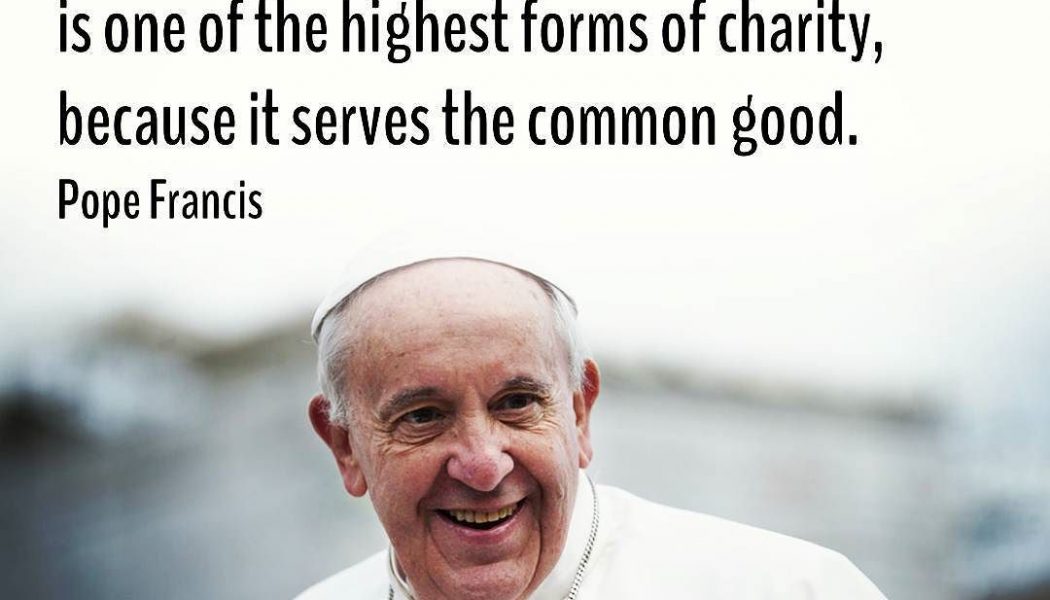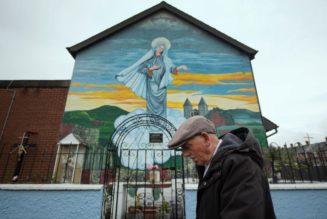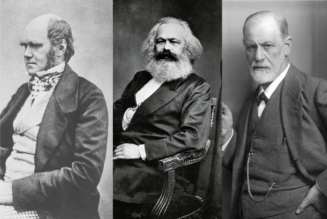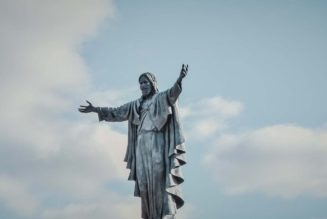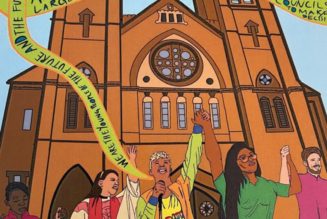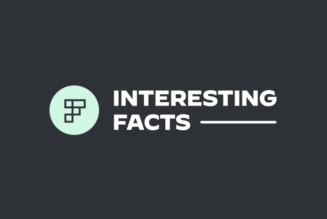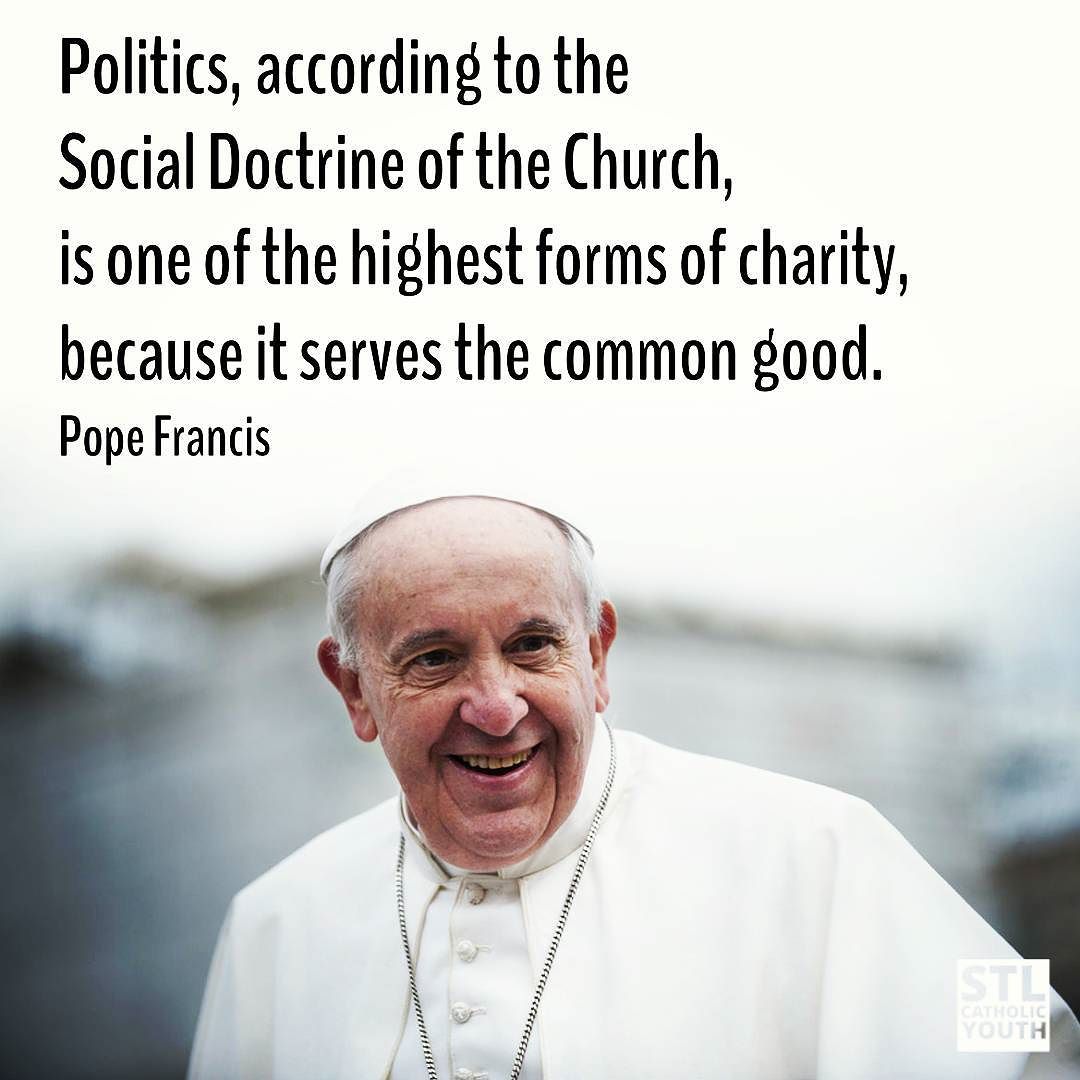
With the rise of Uncle Joe Biden the American public is being presented yet again with a Catholic politician who professes to keep his faith private, while exploiting his Catholic faith whenever he and his PR professionals think it expedient. Joe Biden seems like one of the old school “Kennedy Catholics” who go to church on Sunday and cut deals with the mafia on Monday, hobnob with the Bishops in smoky rooms on Tuesdays and schmooze lobbyists to get their family members cushy jobs on Wednesday. On Thursday they figure out what element of tricky Catholic teaching they can jettison to get a few more votes and on Friday eat fish at a swanky seafood restaurant because they’re Catholic. On Saturday they hang out with some top end billionaires and on Sunday they go to Mass at the parish of one of their favorite monsignors.
Instead of ranting against the Joe Bidens of this world, I got my imagination rolling to visualize what a truly Catholic politician would look like. First, he would be unapologetic about his Catholic faith. Like Hilaire Belloc, who when running for Parliament came out fighting. Joseph Pearce tells the story here:
South Salford was, at the election of 1906, what would now be called a marginal constituency. The Conservatives had won the seat from the Liberals at the previous election with a precarious majority of 1,227. With so much at stake and so few votes likely to separate the two candidates, the Conservatives quickly resorted to the crudest of tactics in their efforts to retain the seat. Playing on popular prejudice, they adopted the slogan ‘Don’t vote for a Frenchman and a Catholic.’ Faced with such an affront to his faith and to the blood of his father, Mr. Belloc decided to come out fighting. He chose a Catholic school as the venue for his first public meeting and decided to ignore the warnings of the local Catholic clergy that he would be wise to skirt the religious question and concentrate instead on other, less contentious issues. Disregarding their advice, he rose to address the packed audience as follows: ‘Gentlemen, I am a Catholic. As far as possible, I go to Mass every day. This [taking his beads out of his pocket] is a rosary. As far as possible, I kneel down and tell these beads every day. If you reject me on account of my religion, I shall thank God that He has spared me the indignity of being your representative.’ For a few seemingly endless moments there was a hush of utter astonishment—followed by a thunderclap of applause. Confronting the bigotry head-on appears to have paid dividends because Mr. Belloc was elected to Parliament on 13 January 1906 with a slim majority of 852.
So the first principle is that the Catholic politician would not apologize for his faith. He would also make it clear that his religion would inform his policies but not dictate them. In other words, as an elected politician he would balance the demands of his religion with the needs of the people he represents. This is a basic principle of all leadership: listen to what the people want but give them what they need. Furthermore, he would make it clear that he respects and upholds freedom of religion. He would see the hunger for God in all religions, and while not falling into indifferentism, he would respect other religions–attempting to find what is beautiful, good and true in all things.
Given this first principle, the truly Catholic politician would be a man of utter integrity, honesty and transparency. In morality he would be blameless. In business he would be honest. In politics he would be wise as a serpent and harmless as a dove. He would speak clearly and firmly according to his principles without wavering but being flexible according to the needs and circumstances. His essential integrity and honesty would serve him well in negotiations because he would trust, but verify, and expect his opposite number to do the same.
The Catholic politician would fully comprehend the social teachings of the church and allow them to be a foundation and guide. He would not cherry pick what suits his political ambitions, but would keep in mind the full balance of Catholic social teaching. He would use his platform to promote and educate about these teachings. Therefore he would balance solidarity with subsidiarity. He would balance the need for shared ownership of capital and means of production* with the right for individual ownership of property. He would balance the demand to assist immigrants and refugees with the right of a country to defend its borders. He would put the family first as the foundation of society and preach and live the truth that the higher the government power the smaller it should be.
The Catholic politician would be inspired and guided by the idea that he is a public servant, using his power and influence for the common good and for the advancement of human rights–the primary right being the right to life. He would be a staunch defender of life, of marriage and therefore of an abundant and prospering people. However, he would not defend life, the family and marriage through negative denunciations, prohibitions and judgmental rulings. Instead he would work positively to promote marriage, life and family through creative legislation and initiatives that empower people at the local level to thrive and prosper.
In every way he would stand up for and serve the “little guy” the poor, the vulnerable, the elderly, the legal immigrant, the marginalized and the needy. He would challenge the rich and powerful to work with him to use their wealth for the common good and rather than using taxation to solve all problems he would encourage all the wealthy to not only invest in change, but to be involved actively to work for the common good.
Finally he would be a joyful gentleman. With confidence and good humor he would encourage, inspire and lead.
I believe there are men and women like that in our society. Unfortunately, the establishment, the media, the powers that be would quash the ambitions of such a person, and if the powers that be would quash such a person it seems to me they would do so because we the people don’t really want a leader like that either because he or she would challenge us too. He would challenge people on both sides of the divide to re-examine their values and their prejudices to find a new way forward. But we prefer the coziness of our comfort zones, and should such a politician arise, no matter what side of the divide we are on, we would cast him aside.
* in case anyone is worried that I am a communist, by “shared ownership of capital and means of production” I am referring to the stock market and the idea that companies offer their employees share options.
